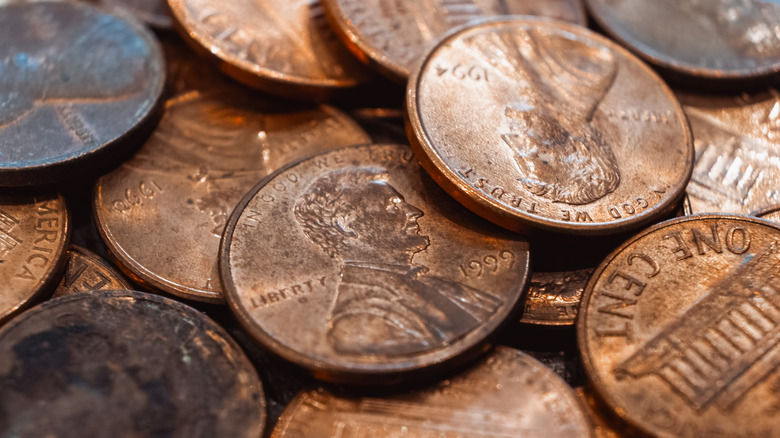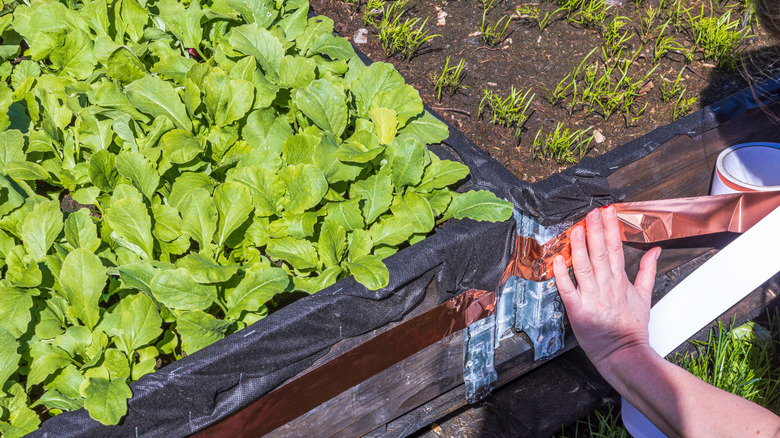The Beneficial Way To Repurpose Pennies In Your Lawn And Garden
We may receive a commission on purchases made from links.
There are a whole host of nutrients and minerals that are vital to soil health, and if you suspect there are problems in your yard, you can make DIY tests to check the condition of your soil. Among the essential micronutrients is copper. If your lawn is showing signs of yellowing or plant growth is slow, there could be a deficiency, and some people swear by repurposing pennies as a solution. The theory goes that pennies are copper, so if you stick them in the ground, they will act as a kind of slow-release fertilizer. Copper can also help combat fungus and moss.
It sounds like a great idea, but there's a problem. Modern pennies might look like copper, but that's actually just a thin coating. The coin itself is 97.5 percent zinc. What you need are older pennies, pre-1982, which are 95 percent copper.
There are a number of different tactics for using old copper pennies in the lawn and garden. If there are patches of yellowish grass, try pushing several below the surface. Likewise, they can be inserted in borders near the roots of flowering plants and shrubs. Another method is to add a few to your potting mix. You might also like to know you can add a couple of pennies to a birdbath to prevent the buildup of algae and so keep the water clear.
No pennies? No problem, and it's not just about plant health
If you don't have any old pennies to use in the yard, consider opting for copper in different formats instead. For example, copper sulfate is popular as a lawn treatment against fungi and moss. It is available online and from farm and garden suppliers in powder or liquid form. It may not be pennies, but it's very affordable.
Using copper is also among the top tips for keeping slugs and snails out of your garden. Contact with it sends the equivalent of a large static electric shock through their bodies, so they invariably avoid it. Self-adhesive material like Kraftex Copper Tape, which is available from Amazon for around $9.99, can be stuck to pots and planters as an effective barrier against these destructive critters. Copper wire can be an equally effective alternative. These products have several advantages over other methods of slug and snail control in that they are long-lasting, don't get washed away like pesticides can, are non-toxic, and don't actually harm the animals. You can also use copper mesh to prevent slugs and snails from invading your garden. Californistan Copper Mesh, available in a 5-inch by 36-foot roll for around $14.00, can additionally be useful for stopping rodents and snakes.
So if you have a bunch of old pennies around the place, there are a number of beneficial ways to use them in your lawn and garden. If you don't, there are several copper-based alternatives that are effective, versatile, and eco-friendly.

